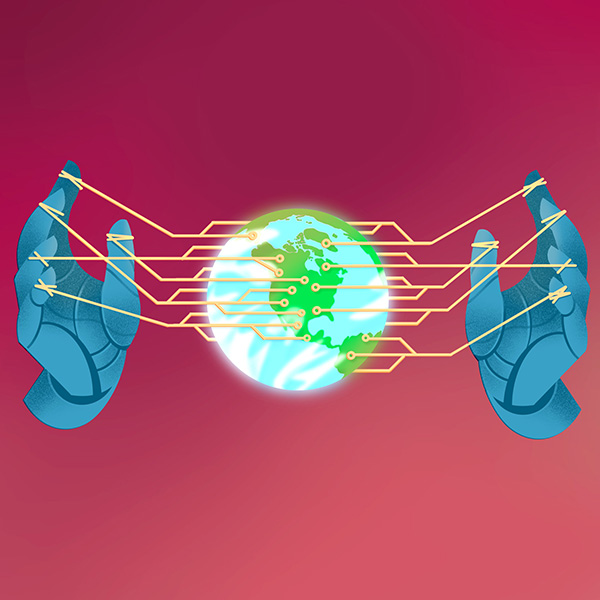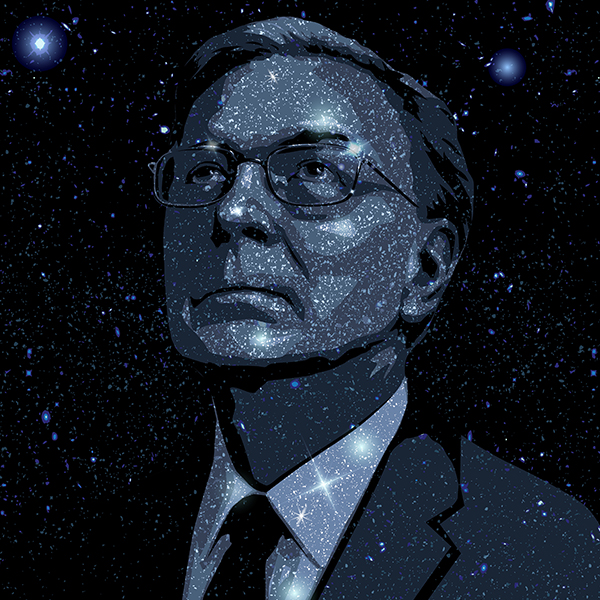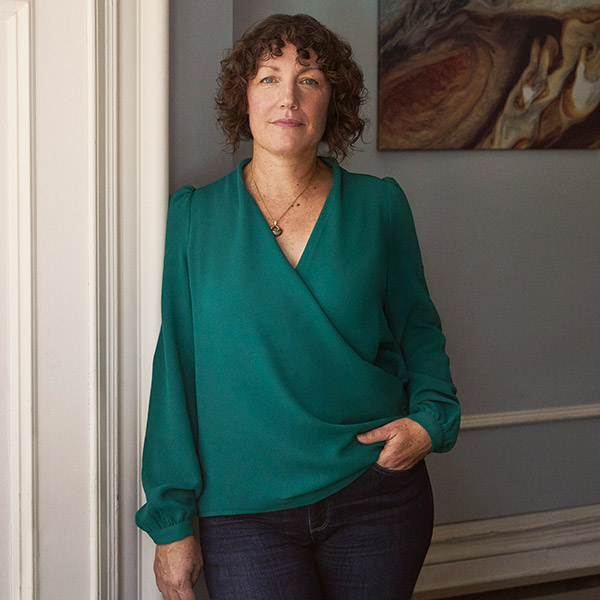Big data and social science are coming together and sharing equal footing at McGill’s new Centre for Social and Cultural Data Science.
Called CSCDS (pronounced as “cascades”) for short, the centre represents an interdisciplinary alliance in which data scientists join forces with research partners in the humanities, arts and social sciences.
The burgeoning relationship between computational methods and critical thinking is a mutually beneficial one, explains centre director Derek Ruths, because data can help answer important questions, but deriving meaning from data requires a principled approach that looks beyond cold, hard numbers.
“I think there’s a history in data science of this colonialist perspective of computationalists and statisticians who think it belongs to them and they’re the ones who bring it to everyone else,” says Ruths, an associate professor of computer science.
“I want to destroy that narrative, because I think it’s unhelpful. It’s true computationalists and statisticians have tools social scientists need, but it’s equally true that social scientists and humanists also have necessary tools. It’s a meeting of peers. This isn’t about data scientists going in and helping everyone else; it’s about them coming together to help each other, because data science is when you bring good social science with good computational modelling.”
It’s this important distinction that makes CSCDS a unique space in the interdisciplinary community, one that Ruths hopes will provide leadership in how to bring people from different backgrounds together.
“CSCDS takes an inclusive view of data science,” he says. “Anyone can take data and try to use it to answer questions, but while data is a very powerful tool, it can be used to support whatever narrative you want to tell. It’s not enough to pick data up and think it’s flawless. You have to approach it with skepticism until you’re confident that any bias that could’ve crept in is mitigated.”
CSCDS includes members from the Departments of Economics, English, Epidemiology, Biostatistics and Occupational Health, Political Science, Social Studies of Medicine, Sociology and the Desautels Faculty of Management. The centre co-hosted a hackathon in November that focused on Montreal-specific data, which was designed to probe for more efficient ways to clear up snow in the winter and where to invest in green spaces.
As data science continues to creep into everyday life, data literacy will only grow in importance, and will likely become a necessity for future generations. Ruths hopes that CSCDS, which had its official launch in October, will be well-positioned to answer the sorts of ethical questions regarding data that will emerge.
“Traditionally, computer science departments and information science departments are not places where you would see deep conversations about the ethics of what should be studied,” says Ruths. “This is where humanities and social sciences have more to contribute.”
Ruths has spent considerable time pondering how data-heavy social media platforms like Twitter and Facebook have shaped our world. He has done extensive research and continues to look at human behaviour on these platforms.
He has explored ways to detect and ultimately curb the epidemic of hate speech and harassment on social media. Unlike many users, Ruths is optimistic about the future of these services and their ability to foster a positive experience.
“We’re engaging in a very difficult conversation right now and if we stick to it, I think society at-large will end up in a better place as a result,” Ruths says. “It may mean social media will look different in the future, but we have an opportunity right now to course-correct and that’s a positive thing.”
An advocate for the thoughtful use of data informed processes, Ruths’ work in examining social media served as inspiration for building a collaborative spirit into the DNA of CSCDS.
“Social media deeply shaped my understanding of what data science is,” he says. “I have a deep and abiding love for all things computer science. When you want to ask a question about Twitter, if you want an honest answer it’s not about pulling out a neural network or how [effective] your code is – it’s about asking what your question really means, and often it’s meant for me and my own research dipping into the social theory.”


